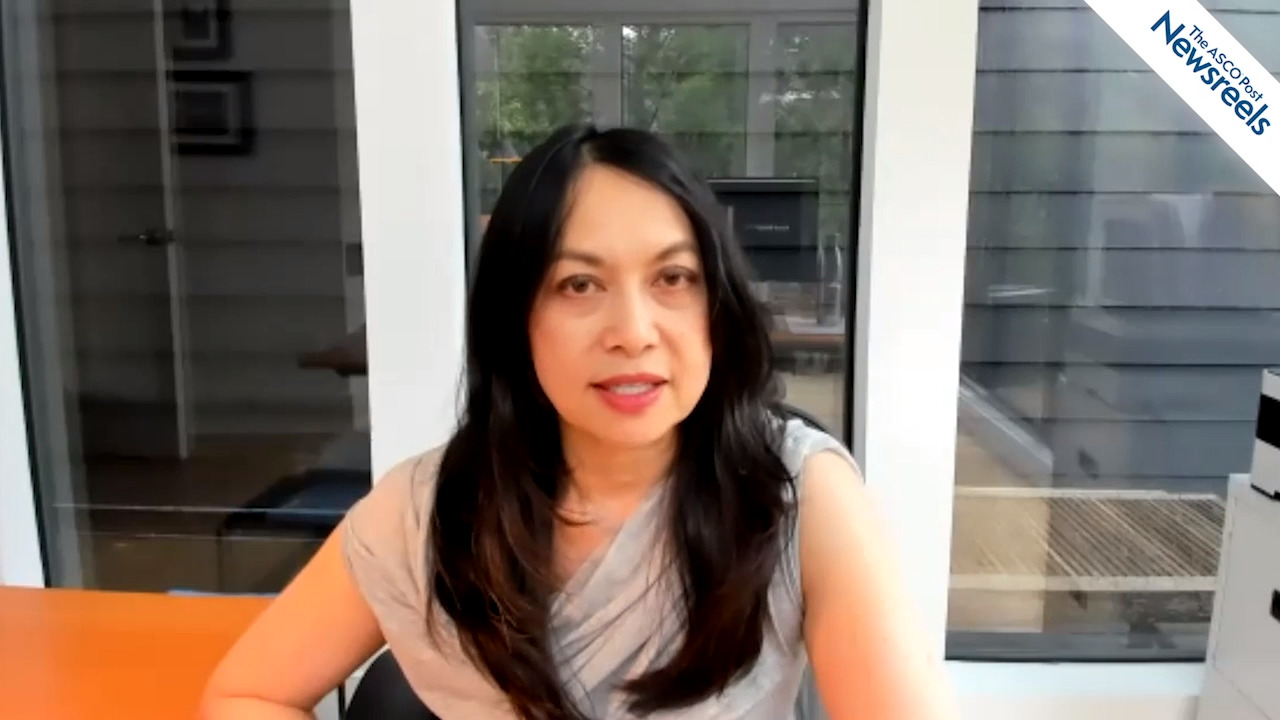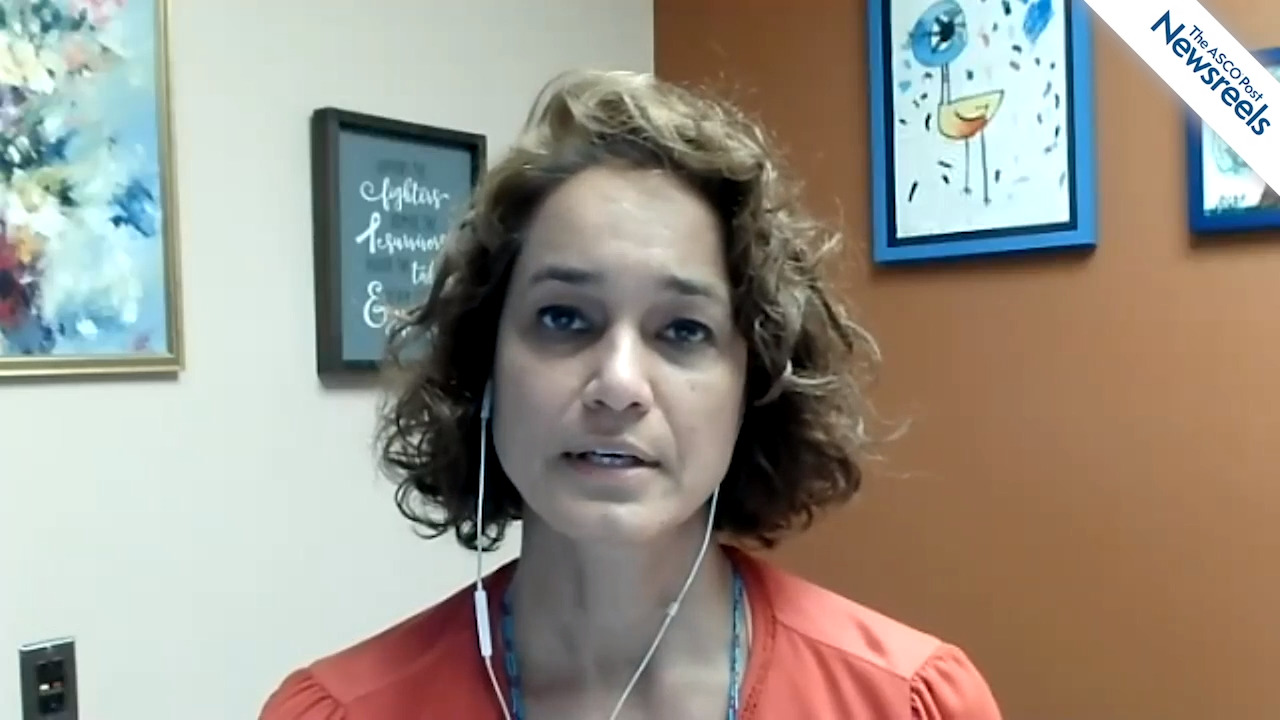Neeraj Agarwal, MD, on Prostate Cancer: Androgen-Deprivation Therapy With Orteronel or Bicalutamide
2021 ASCO Annual Meeting
Neeraj Agarwal, MD, of Huntsman Cancer Institute at the University of Utah, discusses phase III data from the SWOG S1216 trial, which evaluated the clinical benefit of using androgen-deprivation therapy with either orteronel (or TAK-700, a CYP17 inhibitor) or bicalutamide in patients with newly diagnosed metastatic hormone-sensitive prostate cancer (Abstract 5001).
The ASCO Post Staff
Jingxuan Zhao, MPH, of the American Cancer Society, discusses study findings that showed worse long-term survival among low-income patients with cancer who live in states that have not expanded Medicaid eligibility (Abstract 6512).
The ASCO Post Staff
Martin Reck, MD, PhD, of LungenClinic, discusses a 2-year update of the CheckMate 9LA study, which sought to determine whether nivolumab plus ipilimumab combined with two cycles of chemotherapy is more effective than four cycles of chemotherapy alone as a first-line treatment for patients with stage IV non–small cell lung cancer (Abstract 9000).
The ASCO Post Staff
Cathy Eng, MD, of Vanderbilt-Ingram Cancer Center, discusses two abstracts from a session she co-chaired: the phase II DEEPER trial, which explored the use of FOLFOXIRI plus cetuximab vs FOLFOXIRI plus bevacizumab as first-line treatment in metastatic colorectal cancer with RAS wild-type tumors; and the phase II FIRE-4.5 study, which investigated FOLFOXIRI plus either bevacizumab or cetuximab as first-line treatment of BRAF V600E–mutant advanced disease (Abstracts 3501 and 3502).
The ASCO Post Staff
Debora S. Bruno, MD, of Seidman Cancer Center at Cleveland Medical Center, discusses study findings that show Black patients with advanced or metastatic non–small cell lung cancer tend to be less likely to undergo biomarker testing or to be treated in clinical trials than White patients. Recommended broad-based testing, says Dr. Bruno, may help ensure equal access to quality care and clinical trials (Abstract 9005).
The ASCO Post Staff
Brian I. Rini, MD, of Vanderbilt University, discusses findings from KEYNOTE-426, the longest follow-up of a checkpoint inhibitor (pembrolizumab) combined with a VEGF/VEGFR inhibitor (axitinib) for first-line clear cell renal cell carcinoma. The trial results continue to support this combination as a standard of care for patients with previously untreated disease (Abstract 4500).





